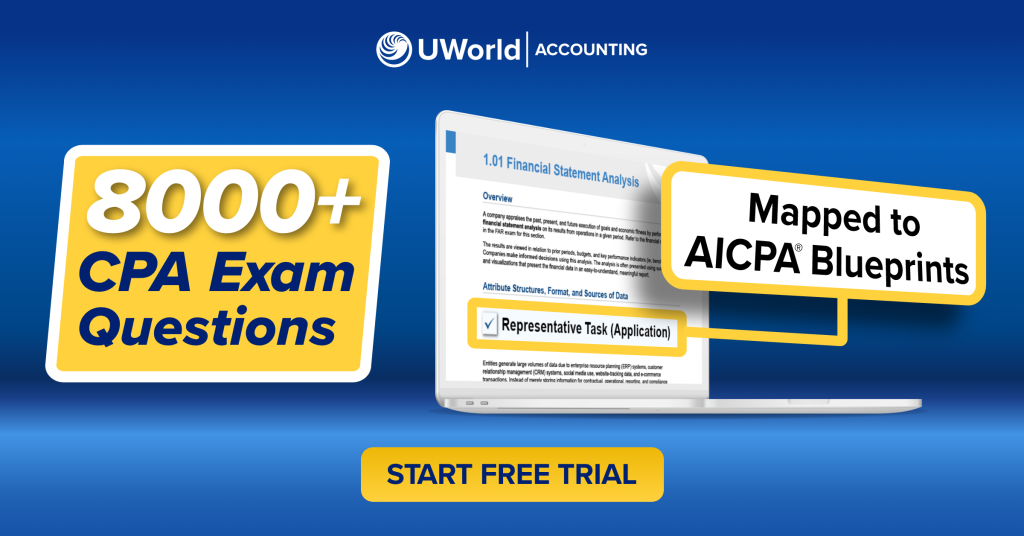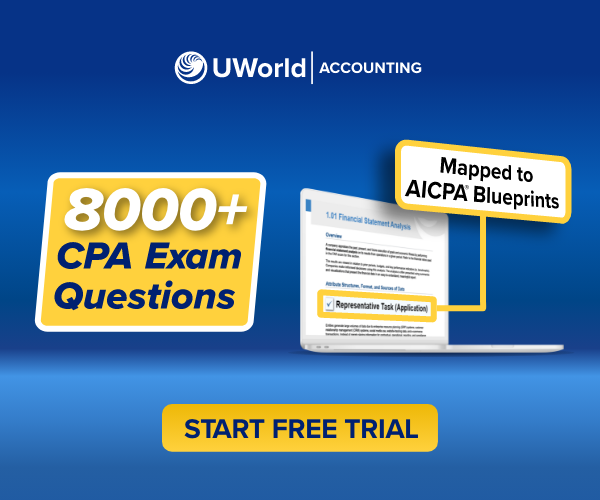Select Your State for Guidelines
*State Board of Accountancy jurisdictions (non-NASBA jurisdictions) are highlighted in bold.
Requirements to Take the CPA Exam
Before taking the CPA Exam, you must meet several state-specific requirements, including age, education, and, in some cases, residency.
Age
Most states do not have a specific age requirement for taking the CPA Exam. However, candidates are generally required to be at least 18 years old.
Citizenship and Residency
U.S. citizenship is not typically required, but some states have residency requirements. You may need to provide proof of residency in the state where you apply to take the CPA Exam.
Education
Most states require candidates to have at least 120 college credits to sit for the CPA Exam. These credits usually come from undergraduate coursework in accounting, business, or related fields.
Requirements to Become a CPA
Becoming a licensed CPA requires more than just passing the CPA Exam. You must also fulfill specific education, work experience, and ethics exam requirements to qualify for licensure.
Take and Pass the CPA Exam
The 16-hour Uniform CPA Exam consists of multiple-choice questions and scenario-based tasks designed to assess your knowledge and ability to apply it in real-world situations.
To pass, you must score at least 75 on each of the 4 sections within a 30 or 36-month window, depending on your jurisdiction.
The CPA exam tests knowledge in 3 core areas:
- Auditing and Attestation (AUD)
- Financial Accounting and Reporting (FAR)
- Regulation (REG)
Candidates must also choose 1 of 3 specialized disciplines:
- Business Analysis and Reporting (BAR)
- Information Systems and Control (ISC)
- Tax Compliance and Planning (TCP)
Earn 150 College Credit Hours
Most states require candidates to complete 150 college credit hours to become licensed CPAs. The additional 30 credits, beyond the 120 needed to sit for the exam, can be earned by pursuing a master’s degree, taking extra undergraduate or graduate courses, or double majoring.
Earn your 150 credit hours affordably online with the UNA Accounting Career Program, in partnership with UWorld — perfect for CPA candidates, career changers, and international students.
Earn Work Experience
Most states require candidates to complete 1 to 2 years of relevant work experience, typically under the supervision of a licensed CPA. You can gain this experience through public accounting, corporate finance, or, in some cases, within government or nonprofit sectors.
Take and Pass an Ethics Exam
Some states require candidates to pass a state-specific ethics exam or one based on the American Institute of CPA (AICPA) Code of Professional Conduct. Although this exam is less rigorous than the CPA Exam, a score of at least 90% is typically needed to pass.
Apply for Your CPA License
Once you pass the CPA and ethics exams and meet the work experience requirements, you can apply for licensure through your State Board of Accountancy or NASBA. Some states may require additional steps, such as undergoing a background check.
Maintaining Your CPA License
To keep your CPA license active, you must regularly complete Continuing Professional Education (CPE) credits and pay renewal fees. The number and type of required credits, such as ethics, vary by state. CPAs must also stay informed on regulatory changes and industry standards to maintain their credentials.
CPA Requirements for International Candidates
NASBA's International CPA Examination Program allows non-U.S. candidates to take the CPA Exam through any participating U.S. jurisdiction. Most states accept international candidates. These candidates must meet the same exam and licensure requirements as U.S. candidates, but an approved board or third-party agency must evaluate their credentials. Note that the CPA Exam is offered only in English.
Read More About Becoming a CPA
Free CPA Exam Basics eBook
CPA Exam Requirements FAQs
Does the CPA Exam require 150 credits? Are there any other requirements?
How do I obtain 150 credit hours to become a CPA?
Consider getting a master’s degree in accounting to obtain the 150 credit hours required to become a CPA or simply take additional courses. Doing so will give you an edge in recruiting since many firms look for candidates who have completed, or will soon complete, 150 units.
What state is best for the CPA license?
Finding the best state to become a CPA depends on your educational background, residency, and career goals. While the CPA Exam is uniform across all states, licensure requirements can vary.
How can I meet the work experience requirement for a CPA?
What is the CPA reciprocity rule by state?
CPA reciprocity allows CPAs licensed in one state to obtain a license in another without meeting all new state requirements from scratch. Most states assess qualifications under substantial equivalency, meaning education, exam, and experience align with national standards.
Many states also have mobility laws, enabling CPAs to practice across state lines without an additional license if they are licensed in a substantially equivalent state. However, some states may require additional steps, like an ethics exam or specific experience.





